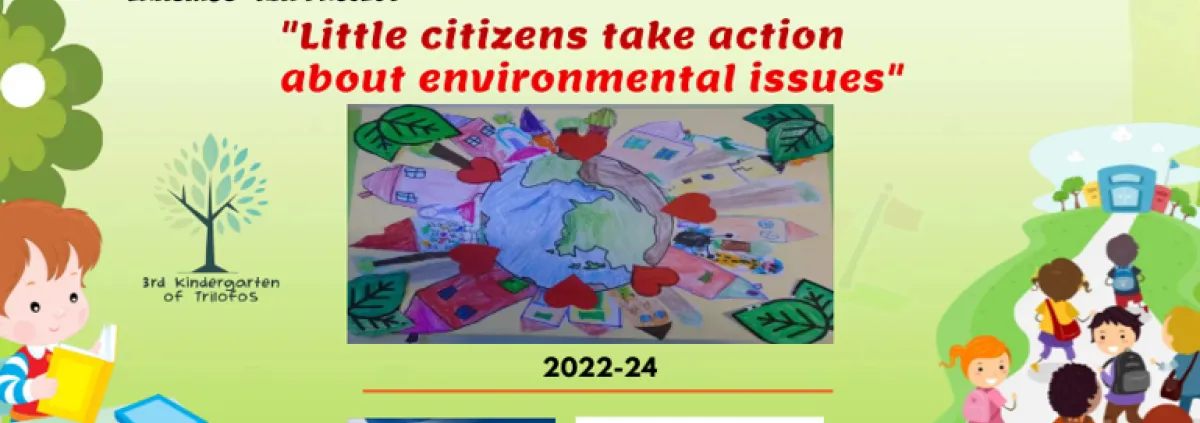The educational practice presented is part of a teaching proposal and intervention designed and designed for the Erasmus+ project KA1 "Little citizens take action about environmental issues", while part of the activities are also presented in the eTwinning Project " Environment in the World of Preschoolers" Which is created in the school year 2022-24 in the context of the diffusion of the above program and in which kindergartens from Portugal, Italy, Turkey, Bulgaria and Greece participate.
It includes instructional suggestions for implementing STEM activities and introducing Educational Robotics, in an effort to learn programming and more generally to develop computational thinking in preschool education through Ensuring Ecosystem Resilience: Protecting the Natural Environment, Its Ecosystems and Ecosystem Flows
The activities developed support 14 of the 17 sustainable development goals that refer to life in water as stated on the United Nations website "The world's oceans and their constituents such as temperature, chemistry, currents and marine life , they are the ones who give impetus to the world systems making the Earth habitable for humanity."
The goal inter alia seeks "By 2025, prevent and significantly reduce all forms of marine pollution, in particular pollution from land-based activities, including marine litter and nutrient pollution." the fairy tales "The Little Turtle and the Sea" by DAVIES BECKY and "10 10 Little Rubber Ducks " by Eric Carle are chosen as prompts.
The purpose of the proposed educational intervention is, through the use of the thematic unit "I care, think and act for the seabed I love", to enrich the children's knowledge of marine ecosystems, to familiarize themselves with concepts such as sea pollution, endangered sea animals , to be informed and aware of environmental issues and through the implementation of activities adapted to the level and interests of their age. To develop knowledge, skills and positive, environmentally friendly attitudes through mathematics, natural sciences and technology to work and live as active and responsible citizens in a way that protects the environment, both now and for future generations.
Description of the Activities to implement the teaching practice
A. Programming activities without the use of a computer
B. Introduction to basic programming skills through the use of computer games
C. Activities and Programming with Robots
Δ..STEM Activities


Please log in or sign up to comment.